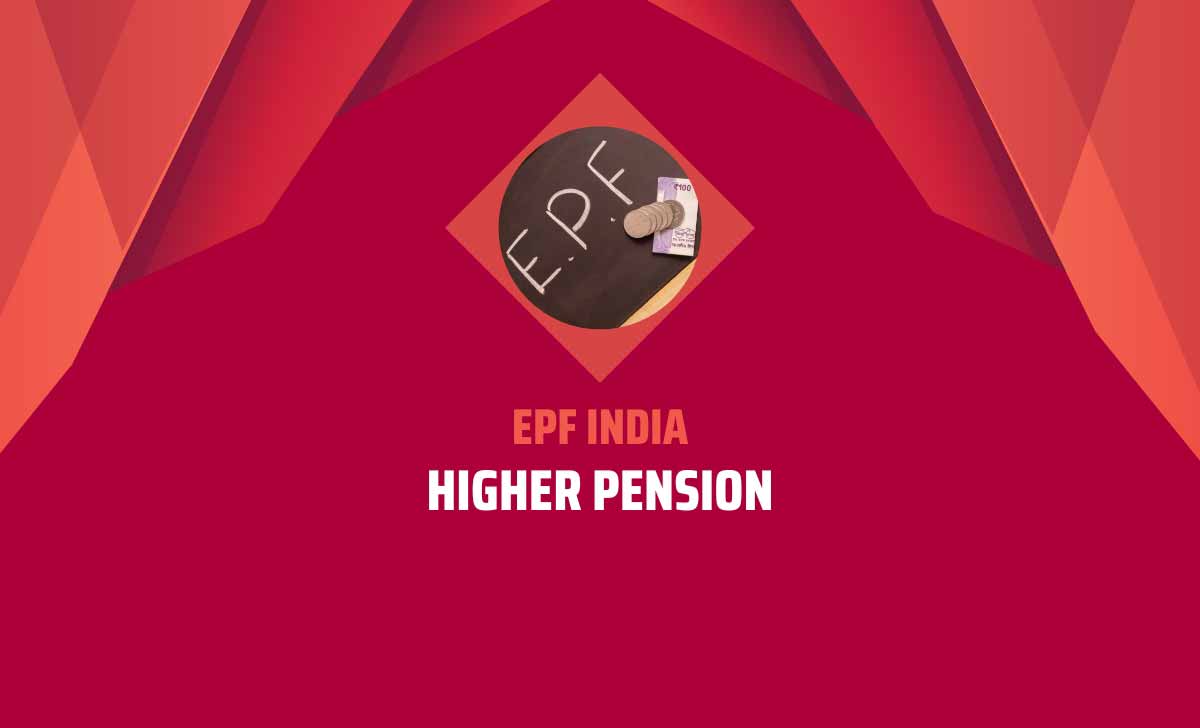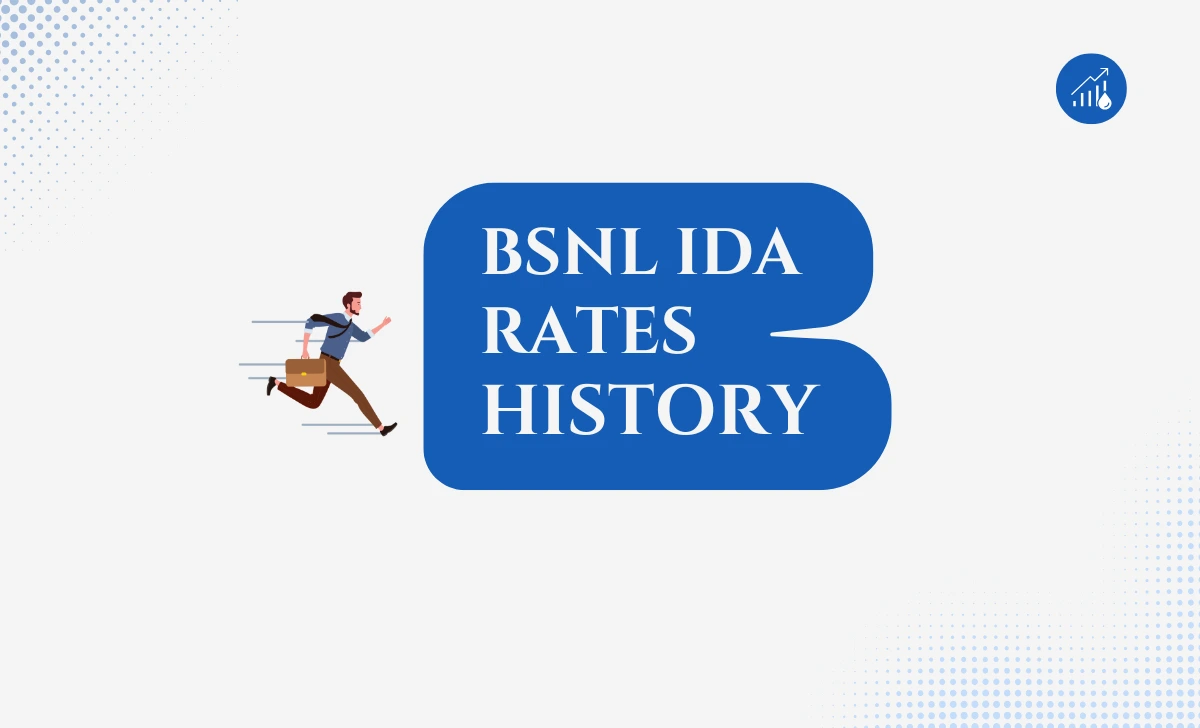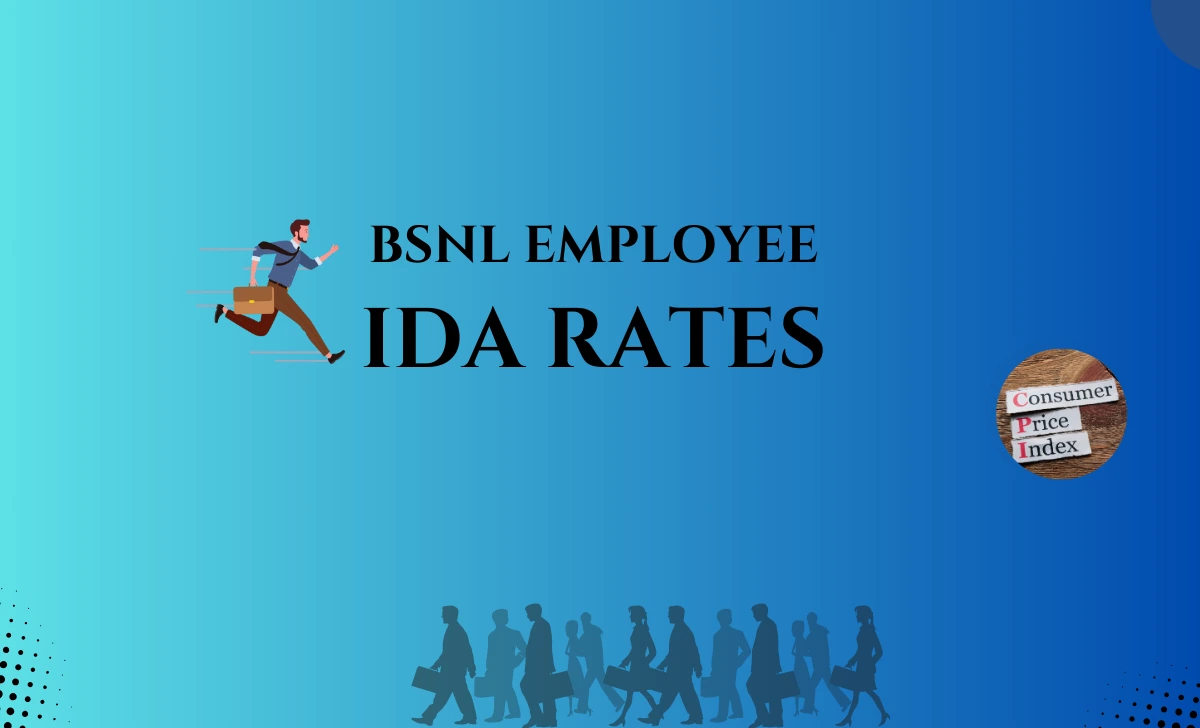Find the complete details on EPF Higher Pension about who are eligible for higher EPS, What will happen if EPF amount already withdrawn, How to apply EPF higher pension, What is formula and the calculation of higher pension in various stages, Terms and conditions, and the applicability of enhanced pension of EPFO, Differences between Current and New Higher Pension of EPFO…
As per the details of G. Acheswarao SNEA BSNL, we present the following data is provided for reference on EPF Higher Pension to know how it works and how new higher EPS will help for a happy retirement life, and this can be the same of all EPF members who are recruited in BSNL, BHEL, SAIL, ONGC, BEL, and other PSU’s / Private organizations, but members of EPFO.
What is EPF Higher Pension
- As per Hon’ble Supreme Court of India order in civil Appeal No(s) 10013-10014 of 2016 arising out of SLP No 33032-33033 of 2015, all the members of Employees Pension Scheme (EPS) 95 which is a social security scheme offered by Employees Provident Fund Organisation (EPFO) will benefit of the actual salary in the pension exceeding wage limit of Rs. 15000 per month, which would get benefit by contributing 8.33% of actual salary instead of ceiling salary.

Who are eligible for EPF Higher Pension
All the employees who joined as a member in Employees Provident Fund Organisation (EPFO) before 1st September 2014 are eligible for EPF Higher Pension.
An EPF member or employee withdraw EPF amount already is eligible for Higher Pension
If the employee / member of EPFO ready to repay the balance amount under Employees Pension Scheme (EPS) is eligible for EPF higher pension
Terms and Conditions for EPS of EPFO
- An employee must have been in the service for at least 10 years.
- One can get the pension after the age of 58 only and the reduced pension of EPFO’s EPS can be withdrawn after the age of 50.
- An EPF member can also defer your pension till the age of 60, and If you opt for deferment, the pension would increase by 4% for every deferred.
- The Pension (EPS) is given to the family after the untimely death of employee, and also an employee can get a pension if s/he gets totally incapacitated.
How to apply for EPF Higher Pension Option
A joint declaration option form of member / Employee and Employer has to submit to concerned Regional EPF office to join in EPF higher pension.
Current EPS of EPFO
- Pension contribution is 8.33% of ceiling salary
- Ex: 8.33% of Rs. 15000 = Rs. 1250
Higher EPS of EPFO
- Pension contribution is 8.33% on ACTUAL SALARY
In both the cases the pension contribution is from 12% of employer contribution only.
Amount Deposited in EPFO Employees Pension Scheme
- Current EPS
- The amount deposited in EPF account is 12% of salary from employee + 12% of salary by employer – Rs. 1250 (8.33% of 15000)
- Higher EPS
- 12% salary of Employee contribution + 3.37% salary of employee contribution by employer + 8.33% salary of employee contributed by Employer is deposited in EPS
The amount deposited in the EPF account is more in current EPS option, but now when opts for higher pension, the amount deposited in the EPS account is more in Higher EPS option.
There is interest on the deposited amount in the EPF, but there is no interest on the deposited amount in the Employees Pension Scheme.
EPF Higher Pension Formula
Current EPS
- 15000 (Ceiling Salary) * Pensionable Salary / 70
- Ex:- 15000*35/70 = 7500
Higher EPS
- Average of 60 months salary * Pensionable service / 70
- Ex:- 100000*35/70 = 50000
Let us check with an example for EPF Higher Pension by assuming Basic and 100% DA merged in 3rd PRC and 4th PRC of PSU for an employee working in 2017 and retires in December 2035.
| Particulars | Current EPS | Higher EPS |
|---|---|---|
| Pensionable Salary | 15000 | 242450 (Average Salary of 60 Months) |
| Suppose in above example employee serves for 33 years (i.e 2 years extra if service is more than 20 years) | 35 | 35 |
| Pension = Pensionable Salary * Years of Service) / 70 | 15000*35/70 = 7500 | 242450*35/70 = 121225 |
| EPF Fund Value under both options on simple interest at 8% | 24745280 | 16880133 |
| Differential Amount in Current EP S | 7865147 |
If your life expectancy is around 8 years after retirement, you are at break even as per above sample calculation, but life is uncertain, and 3rd PRC / 4th PRC has not been taken into consideration and in 2017, 2027, 100% DA has been merged with Basic without any fitment to be in safer side, where you can simulate after changing the figures for EPS.
Know Your Reduced Pension of EPFO
| Age | Factors to Multiply |
| 50 | 0.7837 |
| 51 | 0.808 |
| 52 | 0.833 |
| 53 | 0.8587 |
| 54 | 0.8853 |
| 55 | 0.9127 |
| 56 | 0.9409 |
| 57 | 0.97 |
| 58 | 1 |
Enhanced Pension After 58 under EPS
In the reduced pension formula, the pension decreases by 4% for every year. Similarly, you would get 4% more pension for every extra year. However, you can get only two such years as this benefit is not available after the age of 60.
If employee have VRS / CRS before 50 years of age
There is no pension till attending the age of 50 years, Pension is as per given above reduced table If employee serviced for 15 years with Avg 60 months salary is Rs 40000
Current EPS
- Pension= 15000*no of years service/70
- Ex : 15000*15/70 = 3214
Higher EPS
- Pension= Avg 60 months salary *no of years service/70
- Ex : 40000*15/70 = 8571
Difference Pension when opted for Higher Pension = 8571-3214 = 5357
If employee have VRS / CRS before 50 years of age but serviced 20 Years
In this case also, there is no pension till attending the age of 50 years in both the cases, Pension is as per given above reduced table, If employee serviced for 20 years with average 60 months salary is Rs 100000
Current EPS
- Pension= 15000*no of years service/70
- Ex : 15000*22/70 = 4714
Higher EPS
- Pension= Avg 60 months salary *no of years service/70
- Ex : 100000*22/70 = 31,428
At the age of 50 years, Pension = 31428 * 78 / 100 = 24513
Difference Pension when opted for Higher Pension = 24513 – 3676 = 20837
| Particulars | Current EPS | Higher EPS |
|---|---|---|
| Pensionable Salary | 15000 | 81834 (Average Salary of 60 Months) |
| Suppose in above example employee serves for 22 years (i.e 2 years extra if service is more than 20 years) | 22 | 22 |
| Pension = Pensionable Salary * Years of Service) / 70 | 15000*22/70 = 4714 | 81834*22/70 = 25710 |
| EPF Fund Value under both options on simple interest at 8% | 6384946 | 4535834 |
| Differential Amount in Current EPS | 1849113 |
EPFO EPS FAMILY PENSION
Assumed if employee serviced for 15 years with average 60 months salary is Rs. 40000
Current EPS
- If member death in service, then the Family Pension = (15000 * 20 of years of service / 70) /2
- Ex: (15000 * 15/70) / 2 = 1607.
- If Member death after retirement
- Ex: (15000 * 35/70) / 2 = 3750.
If Opted for Higher Employees Pension Scheme
- If member death in service, then the Family Pension = (15000 * 20 of years of service / 70) /2
- Ex: (40000 * 15/70) / 2 = 4285.
- If Member death after retirement
- As per above case study, Ex: (40000 * 35/70) / 2 = 60612.
Difference in Case1 : 4285 – 1607 = 2678, but Case 2: 60612 – 3750 = 56862
Suppose at present 10 lakh by employee and 10 lakh by employer have been deposited in EPF in last 15 years
- In current EPS pension contribution deposited is = 6500*8.33% * no of Months * no of years
- Ex: 6500*8.33% * 12 * 12 + 15000 * 8.33% * 12 * 3 = 123048
Amount deposited in EPF account =1000000+(1000000-123048)=1876952
If we opt to Higher EPS
As per above case study
- Amount deposited in EPS account = 431051
- Amount deposited in EPF account =1000000+(1000000-431051) = 1568949
- Arrear to be transferred from employee EPF fund to EPS fund : 431051-123048=308003
- Note : This is without considering interest
- If there are any surviving children of the deceased member, falling within a definition of family, they shall be entitled to a monthly children pension in addition to the monthly widow/widower pension.
- Monthly children pension for each child shall be equal to 25 per cent of the amount admissible to the widow/widower of the deceased member
- Monthly children pension shall be payable until the child attains the age of 25 Monthly children pension shall be payable until the child attains the age of 25years
- The monthly children pension shall be admissible to maximum of two children.
Differences for Current EPS and Higher EPS
| Particulars | Current EPS | Higher EPS |
|---|---|---|
| If BSNL / Any PSU continue to give us regular increment and IDA our (employee) retirement | Low Pension | Very High Pension |
| If employer not able to give regular increments and IDA till retirement or in last 5 years of our service or VRS / CRS | EPF Amount is more and EPS amount is Low Access EPF amount would help at the time of Retirement / VRS / CRS | Pension will be low as per last 5 years Wages and EPF amount will also be lower than current EPS |
| If Government imposes taxes on EPF amount withdraw at the time of retirement | More Tax to be paid on EPF amount | Less Tax to be paid |
| If less EPF Interest Rates | Less Pension and Less Interest will be heavy loss in EPF Amount | Higher Pension every month gives comfortable fund in our hand. |
| If Employee and Spouse are alive till 75 years of age | Low Pension will effect for daily life | Very High Pension will give Happy Life |
| If employee and Spouse are alive till 65 years of age | High accumulated EPF amount will help next generation | Next generation and our children above age 25 years will not get any Pension, We have invested lakhs of rupees in 35 years of service, but not enjoyed pension for long time |
| Any emergency Requirement | Higher EPF amount could be withdrawn at the time of Emergency | Not Possible |
If our JOB in any organization (Govt PSU / Private) will continue till 58 years, then the EPF higher pension option will provide higher pension for every member of EPFO, and there is no need to plan anything else for retirement and every employee can enjoy their own current salary in present time without any worry for future retirement.
In current Employee Pension Scheme of EPFO, the option need some other retirement planning like NPS from now onwards to help the existing members too, and if we think with positive attitude, HIGHER EPS of EPFO’s is very good option for every employee to live happily on retirement.



